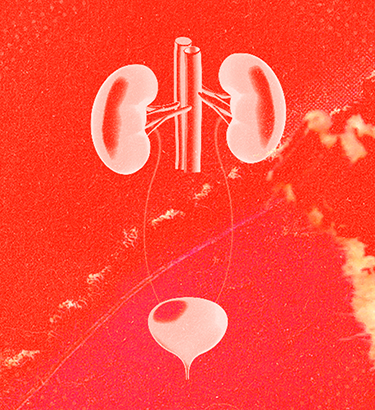Cohen: We all get through medical school the same, and then you choose the residency you want to do. A urology residency can take anywhere from five to six years; my program was six. It had two years of general surgery and four years of urology surgery.


Specialist Q&A: What Can a Urologist Do for You?
In his role as an assistant professor of urology and the director of sexual medicine at NYU Langone Health in New York City, Seth Cohen, M.D., treats an array of men's health conditions, including enlarged prostate, erectile dysfunction (ED), Peyronie's disease and male urinary dysfunction, among others.
Cohen, who has been practicing as a urologist for eight years, attended Tulane Medical School in New Orleans and completed his urology residency at Lenox Hill Hospital and Northwell Health in New York City. He worked on a fellowship in sexual medicine at the University of California San Diego Medical Center and is the host of the "Men's Health" show on SiriusXM's Doctor Radio.
Cohen spoke to Giddy as part of a series on medical specialists.
Editor's note: This interview has been edited for length and clarity.
Urology is basically anything that works in the urinary tract or the genital organs. So, basically, you can think about it like plumbing. It's kidneys on down. Kidneys produce urine, the urine goes down the ureters into the bladder, and the bladder passes the urine through the prostate and out via the penis. Connected to all that are the testicles. That's about all we play with. We deal with anything in between, like kidney stones, kidney tumors, bladder stones, bladder tumors, bladder infections, prostate cancer, prostate infections, penis problems, erection problems, ejaculation disorders and fertility issues of the testicle.
When you're in medical school, they always say there are two types of medical students: those who feel like they want to practice without surgery and those who want to practice within surgery. Within surgery, there are a lot of subspecialties, like ophthalmology, general surgery, orthopedics and so on. I knew when I was in medical school that I wanted to do some kind of operating. I didn't know exactly what. We had our different rotations, and that was when I was on urology rotation that I really enjoyed those kinds of surgeries.
The most common are probably urinary issues: people who can't pee or people who pee too much. Prostate cancer, PSA [prostate-specific antigen] elevations, and erectile and sexual disorders.
I'm subspecialized within urology to do sexual medicine, which encompasses anything from the genital organs down. Anything from erectile problems to Peyronie's disease to hormonal dysfunction, such as testosterone issues, to fertility problems in the testicle.
Usually, they're referred for a specific reason. I'm not sure they need to know much. They want to go to a urologist who's going to treat their condition. For example, someone who has a diagnosis of prostate cancer and wants to get prostate cancer treatment should certainly find a urologist who specializes in prostate cancer treatment versus just going to a general urologist or someone like me who doesn't do prostate cancer. They want to make sure they're going to the right urologist. If they're not sure, they can always ask the secretary or the medical assistant beforehand.
Whenever you go to meet a new doctor or as a first-timer at a new medical health system, you want to bring as much of your old information as possible, such as old lab values, old imaging studies like ultrasounds or CAT scans, and maybe even notes from your previous doctor. I get a lot of second, third, fourth and ninth opinions. I always have patients bring all the information with them so that we can go over it. It just makes our lives easier rather than repeating everything.
If it's for urinary problems, we're going to potentially do a rectal exam and feel the prostate. We may order an ultrasound and look at the kidneys, bladder and prostate. If they're coming specifically for erectile problems, we may do a specific ultrasound of the penis—we call this a penile duplex Doppler ultrasound—to look for arterial dysfunction. There are other things we can do, like a cystoscopy, which is using a camera to go down the urethra and look at the prostate to make sure there are no lumps, bumps or polyps, and look in the bladder for that.
If they're coming because we're suspecting prostate cancer, they may need two, three or four visits for prostate biopsies and other ultrasounds and imaging to discuss the results. If they're just coming for a Viagra prescription for mild ED, it may only be one visit and then we see them in a year. For the most part, I think in general it's between two to three visits and then usually a once-a-year follow-up. Most patients who come with chronic issues will be seen every six months to once a year.
Yeah, we're pretty divided now. You can still find a general urologist out in the public, but if you visit academic centers, most of us are fellowship-trained in one specific area. So there's someone who specializes in prostate cancer, someone who specializes in kidney cancer, kidney stones, fertility and infertility, sexual medicine, urinary problems and even female urology. There are people who only see women and women's urological complaints.
We certainly would like a newer treatment for erectile problems, because for 20 years, we've really only had pills, injections and a penis implant. Men are looking for more permanent solutions.









